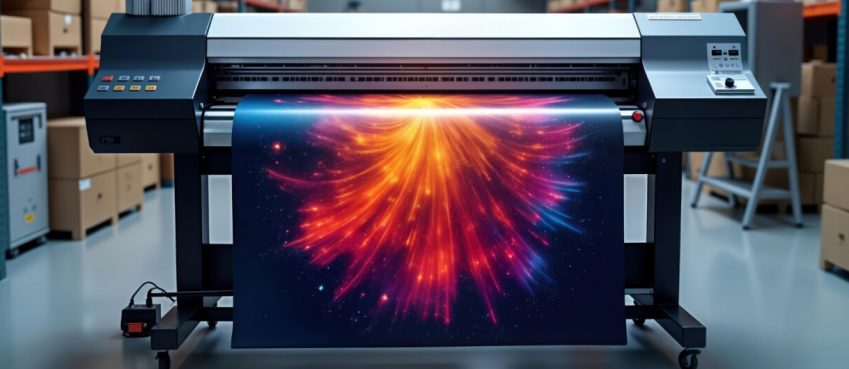
I. Introduction
A. The importance of technology in modern manufacturing
Technology has become an essential driving force behind modern manufacturing, as it continuously evolves to improve efficiency, quality, and sustainability. From automation to artificial intelligence (AI), technological advancements are revolutionizing the way products are created and delivered, leading to increased productivity and cost savings across various industries.
B. The growing impact of technology on the skincare industry
The skincare industry is no exception to this technological revolution. As consumer preferences evolve and demand for innovative and eco-friendly products grows, manufacturers are turning to technology to meet these expectations. This article will explore the various ways in which technology is transforming skincare production processes and improving efficiency.
II. Automation in Skin Care Manufacturing
A. Robotic systems for assembly and packaging
Automation plays a significant role in skincare manufacturing, with robotic systems increasingly being used for assembly and packaging tasks. These systems can efficiently handle repetitive tasks, such as placing products into containers, applying labels, and sealing packages. Robotics not only improves production speed and accuracy but also reduces the risk of human error and workplace injuries.
B. Automated filling and labeling machines
Automated filling machines are used to dispense precise amounts of skincare products into containers, ensuring consistent product quality and reducing waste. Similarly, automated labeling machines can apply labels to containers with high accuracy, ensuring that information is clearly displayed and adhering to regulatory requirements. These machines can handle a wide range of container sizes and shapes, offering flexibility and adaptability to skincare manufacturers.
C. The benefits of automation for efficiency and accuracy
Automation offers numerous benefits to skincare manufacturers, including increased efficiency, improved accuracy, and reduced labor costs. By automating various production processes, manufacturers can significantly reduce the time it takes to produce skincare products, ultimately increasing output and lowering production costs. Furthermore, automation reduces the likelihood of human error, leading to more consistent product quality and increased customer satisfaction.
Also read: Caktus AI Review: Is It The Best AI Helper For Students? (Complete Guide)III. Artificial Intelligence (AI) in Skincare Manufacturing
A. AI-driven formulation development
Artificial Intelligence (AI) is playing an increasingly important role in skincare manufacturing, particularly in the area of formulation development. AI-driven algorithms can analyze vast amounts of data, including customer preferences, trends, and ingredients, to develop new product formulations that cater to specific market needs. This data-driven approach enables manufacturers to create innovative and customized skincare products faster and more accurately than traditional methods, allowing them to stay ahead of the competition.
B. Quality control and defect detection
AI can also be used to improve quality control and defect detection in skincare manufacturing. Advanced machine learning algorithms can analyze images and data collected during production to identify defects, irregularities, or inconsistencies in the final product. By automating this process, skincare manufacturers can ensure that their products meet stringent quality standards while reducing waste and minimizing the need for manual inspection.
C. Predictive maintenance and process optimization
Another valuable application of AI in skincare manufacturing is predictive maintenance and process optimization. AI-powered systems can analyze real-time data from production equipment to detect potential issues or inefficiencies before they become critical problems. This enables manufacturers to perform maintenance or make adjustments proactively, reducing downtime and optimizing overall production efficiency. Additionally, AI can help identify bottlenecks and inefficiencies in the manufacturing process, allowing for continuous improvement and increased productivity.
IV. Digitalization and The Industrial Internet of Things (IIoT)
A. Real-time data collection and analysis
The Industrial Internet of Things (IIoT) is transforming skincare manufacturing by enabling real-time data collection and analysis. By connecting production equipment, sensors, and devices to a centralized network, manufacturers can monitor and analyze various aspects of their operations in real time. This data-driven approach provides valuable insights into production efficiency, energy consumption, and product quality, allowing manufacturers to make informed decisions and quickly adapt to changing market conditions.
B. Enhanced supply chain management
Digitalization and IIoT technologies also offer significant benefits in terms of supply chain management. By integrating data from suppliers, manufacturers, and distributors, skincare companies can gain a comprehensive understanding of their supply chain and identify potential areas for improvement. This increased visibility enables manufacturers to optimize inventory levels, reduce lead times, and respond more effectively to changes in demand.
C. Remote monitoring and control of manufacturing processes
Another advantage of IIoT in skincare manufacturing is the ability to remotely monitor and control production processes. Through secure, cloud-based platforms, manufacturers can access real-time data and make adjustments to their operations from anywhere in the world. This capability not only improves efficiency but also allows for greater flexibility in response to market changes or unexpected events.
V. 3D printing and Virtual Reality (VR) in Skincare Manufacturing
A. Customized packaging production
3D printing is a promising technology in the skincare industry, particularly for the production of customized packaging. With the ability to create intricate and unique designs, 3D printing enables manufacturers to develop personalized packaging solutions that cater to specific customer preferences and enhance brand identity.
B. Rapid prototyping and product development
In addition to packaging, 3D printing can also be used for rapid prototyping and product development in the skincare industry. Manufacturers can quickly create and test new product designs, reducing the time it takes to bring innovative skincare products to market.
C. Potential applications in personalized skincare products
As 3D printing technology continues to advance, it may also be used to create personalized skincare products tailored to individual customer needs. By combining 3D printing with advanced skin analysis technologies, manufacturers could potentially develop custom formulations and products designed to address specific skin concerns and preferences.
D. VR for employee training and virtual facility tours
Virtual Reality (VR) is another emerging technology with potential applications in skincare manufacturing. VR can be used to provide immersive training experiences for employees, allowing them to learn about production processes and safety procedures in a realistic and engaging environment. Additionally, VR can be utilized for virtual facility tours, enabling potential clients, investors, or partners to explore manufacturing sites without having to physically visit the location.
Also read: How To Calculate Your Body Temperature With An iPhone Using Smart ThermometerVI. RFID Technology in Skincare Manufacturing
A. Inventory management and tracking
Radio Frequency Identification (RFID) technology is becoming increasingly important in skincare manufacturing, as it offers significant benefits in terms of inventory management and tracking. RFID tags can be attached to individual products or packaging, allowing manufacturers to monitor inventory levels, track product movement, and optimize warehouse efficiency. This real-time visibility into inventory can help reduce stockouts, minimize overstocking, and improve overall supply chain management.
B. Anti-counterfeiting measures
RFID technology also plays a crucial role in combating counterfeiting in the skincare industry. By embedding unique RFID tags into product packaging, manufacturers can authenticate and verify the legitimacy of their products, ensuring that customers receive genuine, high-quality skincare items. This can not only protect brand reputation but also help maintain consumer trust and safety.
C. Streamlined distribution and logistics
The use of RFID technology in skincare manufacturing extends beyond inventory management and anti-counterfeiting measures, as it can also streamline distribution and logistics processes. By providing real-time tracking information, RFID can enable manufacturers to optimize shipping routes, reduce transit times, and monitor shipments, ultimately improving overall supply chain efficiency and reducing costs.
VII. Flexibility and Agility in Skin Care Manufacturing
A. Adapting to changing consumer preferences and trends
In the rapidly evolving skincare industry, the ability to adapt to changing consumer preferences and trends is essential for manufacturers. By embracing technology and implementing flexible manufacturing processes, skincare companies can quickly respond to shifts in demand and capitalize on emerging trends, ensuring that they remain competitive in the market.
B. Scalable manufacturing processes and technologies
Scalable manufacturing processes and technologies are critical for skincare manufacturers seeking to remain agile and responsive to market fluctuations. By investing in modular production systems and advanced manufacturing technologies, companies can easily expand or reduce their production capacity as needed, enabling them to meet changing customer demands without sacrificing efficiency or quality.
C. Responding to market demands and supply chain disruptions
Flexibility and agility in skincare manufacturing are also vital for effectively responding to market demands and supply chain disruptions, such as those caused by global events or natural disasters. By adopting advanced technologies and implementing adaptable manufacturing processes, skincare manufacturers can minimize the impact of these disruptions and maintain a consistent supply of products to their customers.
VIII. Sustainable Manufacturing Technologies
A. Energy-efficient machinery and processes
As sustainability becomes increasingly important in the skincare industry, manufacturers are adopting energy-efficient machinery and processes to minimize their environmental impact. This includes investing in energy-saving production equipment, optimizing production processes to reduce energy consumption, and implementing renewable energy sources to power manufacturing facilities.
B. Waste reduction and recycling technologies
In addition to energy efficiency, waste reduction, and recycling technologies are essential components of sustainable skincare manufacturing. By embracing advanced waste management systems and recycling technologies, skincare manufacturers can reduce their environmental footprint and contribute to a circular economy. This includes minimizing material waste during production, repurposing by-products, and recycling or composting used packaging materials.
C. The role of technology in supporting eco-friendly packaging solutions
Technology plays a vital role in supporting the development and implementation of eco-friendly packaging solutions in the skincare industry. From innovative biodegradable materials to intelligent packaging designs, technology enables manufacturers to create packaging that aligns with their sustainability goals while maintaining product integrity and aesthetic appeal.
Also read: Top 3 Lessons I Learned from Growing a $100K+ BusinessIX. The Future of Technology in Skincare Manufacturing
A. The potential of emerging technologies, such as blockchain and nanotechnology
Emerging technologies, such as blockchain and nanotechnology, hold significant potential for the future of skincare manufacturing. Blockchain technology can enhance supply chain transparency and traceability, while nanotechnology can revolutionize product formulations and delivery systems. As these technologies continue to mature, they will likely play an increasingly important role in shaping the skincare industry.
B. The growing importance of data-driven decision-making
In the age of digital transformation, data-driven decision-making is becoming increasingly crucial for skincare manufacturers. By harnessing the power of data analytics and artificial intelligence, companies can gain valuable insights into consumer preferences, market trends, and production efficiency. This data-driven approach will enable skincare manufacturers to make more informed decisions and remain competitive in a rapidly evolving industry.
C. The need for continued investment in research and development
As technology continues to advance, it is essential for skincare manufacturers to invest in research and development to stay ahead of the curve. By exploring new technologies and innovative processes, manufacturers can not only improve their existing products and operations but also create groundbreaking solutions that reshape the industry.
Conclusion
A. Recap of the transformative role of technology in skincare manufacturing
Throughout this article, we have explored the transformative role of technology in skincare manufacturing, highlighting its impact on efficiency, sustainability, and product innovation. From automation and artificial intelligence to 3D printing and RFID technology, these advancements are revolutionizing the way skincare products are produced, packaged, and distributed.
B. The ongoing need for innovation and adaptation to remain competitive in the skincare industry
In conclusion, the skincare industry must continue to embrace innovation and adaptation in order to remain competitive in an ever-changing market. By investing in advanced technologies and adopting agile manufacturing processes, skincare manufacturers can not only meet the evolving demands of consumers but also stay ahead of the competition and drive the industry forward.
- 3D printing and Virtual Reality (VR) in Skincare Manufacturing
- Artificial Intelligence (AI) in Skincare Manufacturing
- Industrial Internet of Things
- Skincare Manufacturing
- The Future of Technology in Skincare Manufacturing
- The Role Of Technology In Skincare Manufacturing
- TNT2023
- Transforming Production Processes And Efficiency
Top 10 News
-
01
Top 10 Deep Learning Multimodal Models & Their Uses
Tuesday August 12, 2025
-
02
10 Google AI Mode Facts That Every SEOs Should Know (And Wha...
Friday July 4, 2025
-
03
Top 10 visionOS 26 Features & Announcement (With Video)
Thursday June 12, 2025
-
04
Top 10 Veo 3 AI Video Generators in 2025 (Compared & Te...
Tuesday June 10, 2025
-
05
Top 10 AI GPUs That Can Increase Work Productivity By 30% (W...
Wednesday May 28, 2025
-
06
[10 BEST] AI Influencer Generator Apps Trending Right Now
Monday March 17, 2025
-
07
The 10 Best Companies Providing Electric Fencing For Busines...
Tuesday March 11, 2025
-
08
Top 10 Social Security Fairness Act Benefits In 2025
Wednesday March 5, 2025
-
09
Top 10 AI Infrastructure Companies In The World
Tuesday February 11, 2025
-
10
What Are Top 10 Blood Thinners To Minimize Heart Disease?
Wednesday January 22, 2025







